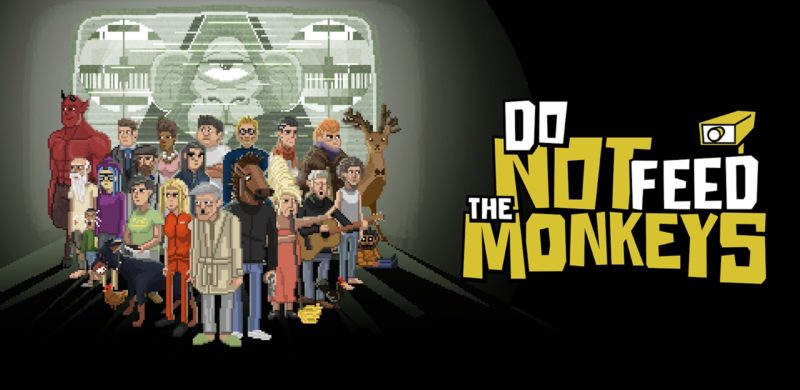
Do Not Feed the Monkeys, from developers Fictiorama Studios and Badland Games, tells a unique story. Now, to anyone who has played the game, this sentence may be a little confusing, because the game itself has no clear-cut narrative. There are moments whose internal storylines play out after you have either won or lost, but the game itself has no hierarchical narrative save that you, the player character, are striving towards the highest possible status within the secretive organization granting you a life-feed into the lives of others. The real meta-story of Do Not Feed the Monkeys is one you, the player create in the process of playing, and in this way, Do Not Feed the Monkeys proves to be one of the most phenomenal meta-discursive gaming experiences I have ever played.
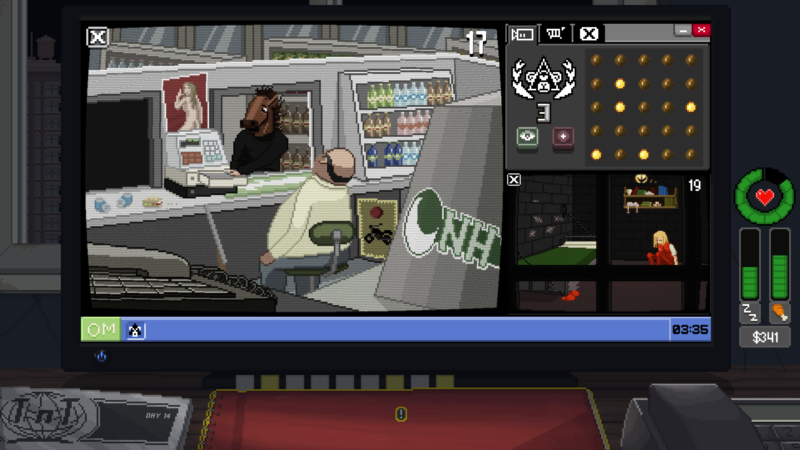
In the game, you’re a person living alone in a one-room apartment, roped into a secretive club by a friend of yours, who you only ever communicate with over online chat. As a member of this club, it is your responsibility to secretly observe and document the lives of people through hidden-camera video feeds. All the subjects, the “Monkeys,” live distinct lives, and as you follow them, you become engrossed in their existences. Most are remarkably layered, and as you observe them you imprint upon their lives and begin to invest in them emotionally.
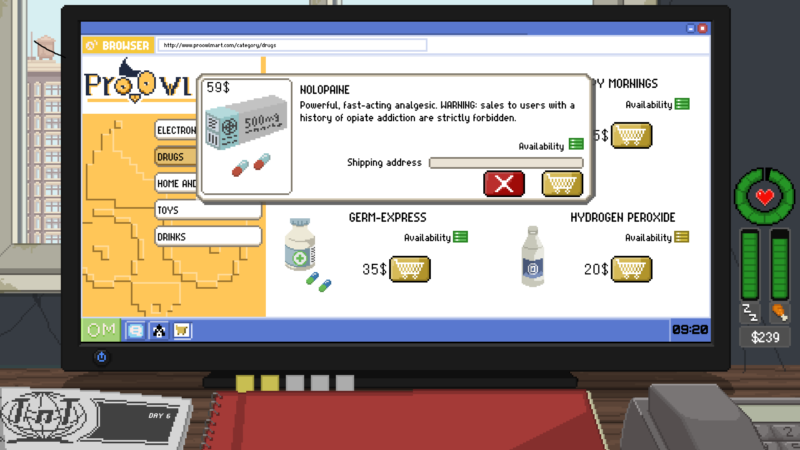
Now, the primary gameplay loop consists of managing your different ‘Monkey’s cages,’ and buying new ones—allowing you to observe more Monkeys at a time—to meet club quotas. Every few days you must reach a particular level of cages, or the club will kick you out. This loop is juggled by having to work jobs to get money to pay rent and take care of your physical and mental well being. There are no meaningful explanations to the systems at play, so you must quickly come to grips with how to manage your remarkably limited time. You need to sleep, or your exhaustion meter will deplete too far to work, but likewise, some subjects you are observing are only active at night. You need to maintain your hunger levels and wellness levels, but some food—while filling your hunger—depletes your wellness. You also need to work for money to pay rent and buy new cages, but if you’re not observing the cages, you miss out on valuable information that you can report to the club for a cash reward. These kinds of time-management puzzles form the backbone of the game’s difficulty and challenge.
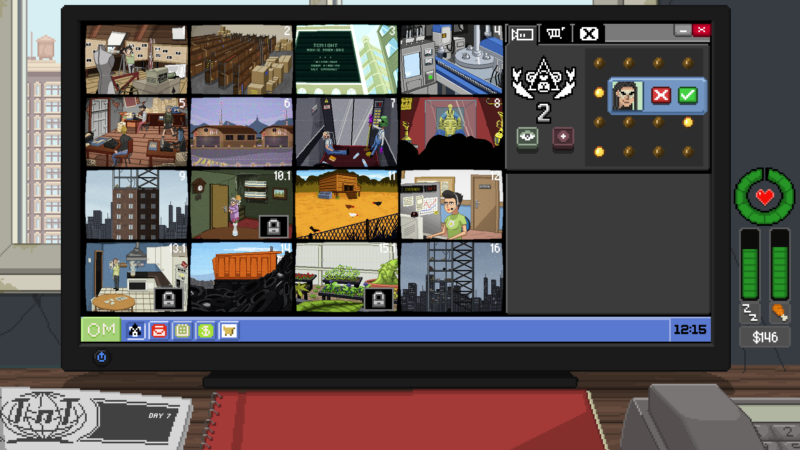
While this gamified life-management component of Do Not Feed the Monkeys is a fundamental part of how you experience the game, the real heart of the game are the monkeys you are observing. Some characters are poignant, layered, and heartbreaking. Some are goofy, cartoonish, and lovable. The spectrum of stories being told ranges from a giant talking plant dead-set on world domination to a young woman trying to put her life back together after her alcoholism results in the death of a child. These stories, as well as the dialogue, will make you laugh out loud, and then genuinely feel for these constructed characters. The art direction of the game, with its pixelated flair and remarkable color palette, makes the experiences thoroughly light to start. If there were one thing to criticize in Do Not Feed the Monkeys, it would be that the game is remarkably short. I played through multiple times for this review and frequently found myself stumbling upon the same sequences and cages, although the game promises that various playthroughs would reveal whole new pens and forge wildly distinct experiences each time. This just wasn’t the case, and frankly, the game suffered for it. I left wanting more, but not always wanting to play again. Despite this, however, it never impacted my appreciation for the stories the game did tell. I was never resentful of coming upon one cage again.
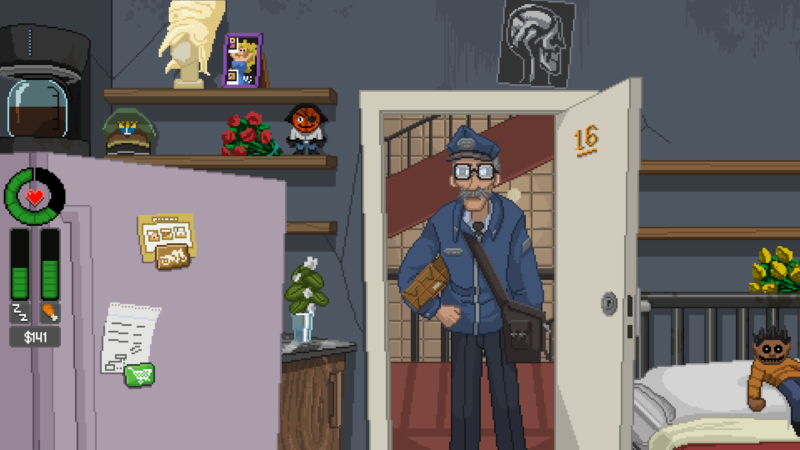
That is the goal of the game and the great trick of playing it. You don’t realize you care until you’ve resolved that cage and cannot observe them again. You are not supposed to feed the monkeys, but by collecting information and documenting how they live, you can influence their lives. The real trial of the game is battling that compulsion help, hurt, or just let alone the small, isolated world of someone else. The game makes a commentary on our compulsion as people to do whatever we can to reach out across the screen and try to find a connection. In this way, it is poetic, beautiful, and remarkably tragic. Since you can influence some of these events through your access to the internet and telephone, you can go a long way towards helping or hurting these people. In one of my playthroughs, I sent the young alcoholic woman booze through the mail and managed to exploit her call center position to make her give me a considerable payout despite not having an insurance policy with the company she works for. Why did I do this? Partly to see if I could, and partly because I’m a gamer (and thereby a total monster). But the way watching her life unravel made me feel says a lot about the capacity of us, as humans, to feel for others when we see them—real or not—suffer.
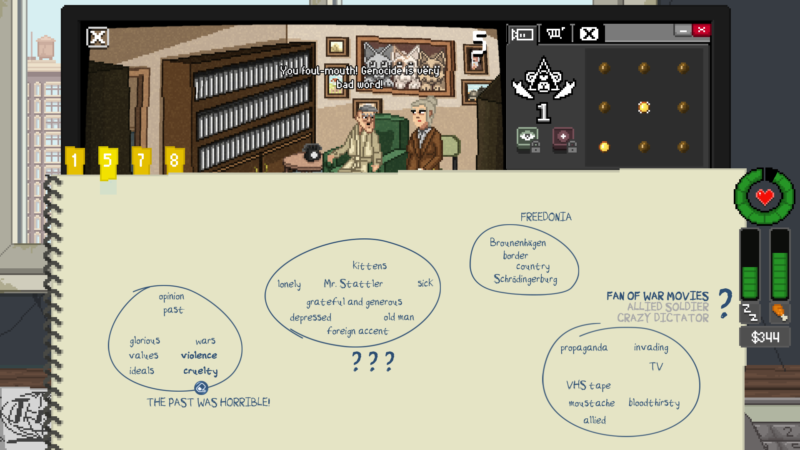
Since this game review has basically turned into a dissertation, I’ll just say this in closing: Do Not Feed the Monkeys is a game that makes you question why you play video games. It makes you wonder what those stories and those experiences mean to you. It makes you doubt what constitutes a game, and whether we should even be playing. And that is a good thing. They are meaningful questions that make us, as gamers and people, better. And if nothing else entices you, then you should at least know that the pizza delivery guy looks like a badass ninja.
I give Do Not Feed the Monkeys an 8.5/10.
Check Out the Do Not Feed the Monkeys Trailer:
Do Not Feed the Monkeys is available for PC and Mac via Steam.
Steam Review
I am current Junior at Carnegie Mellon University, and a deep lover of all things gaming and narrative. I play just about every game genre imaginable, but am particularly fond of story driven games and any narrative world where words have more letters than necessary. I am naturally drawn toward RPGs and Action Adventure Games, but am a huge fan of FPS titles, and competitive online games. Also developed a pretty recent addiction to turn-based and 4X strategy games. Shout out to Total War: Warhammer. Some of my favorites of all time include Dishonored, Witcher 3, Undertale, Half Life 2, and What Remains of Edith Finch. I just finished the newest God of War, and that's jumped pretty high on that list as well. As an avid writer and consummate lover of gaming, I hope that my reviews might provide meaningful insight into the games I play, or kick-start a love for narrative and gaming in others!

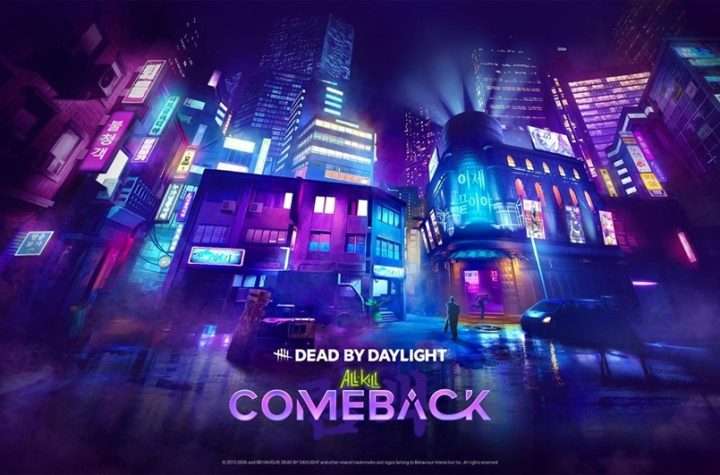
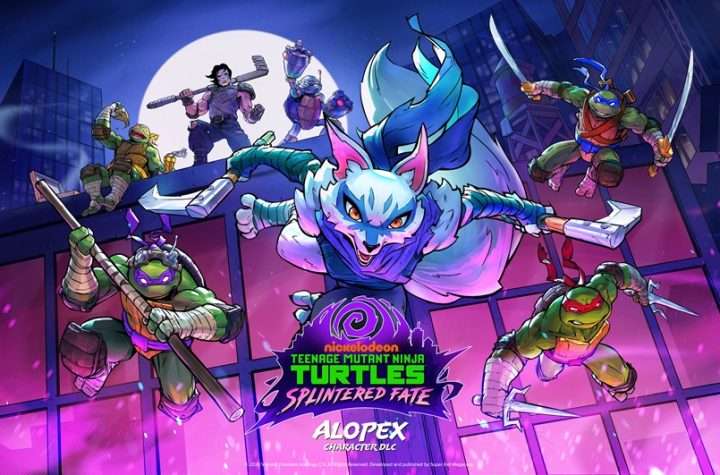

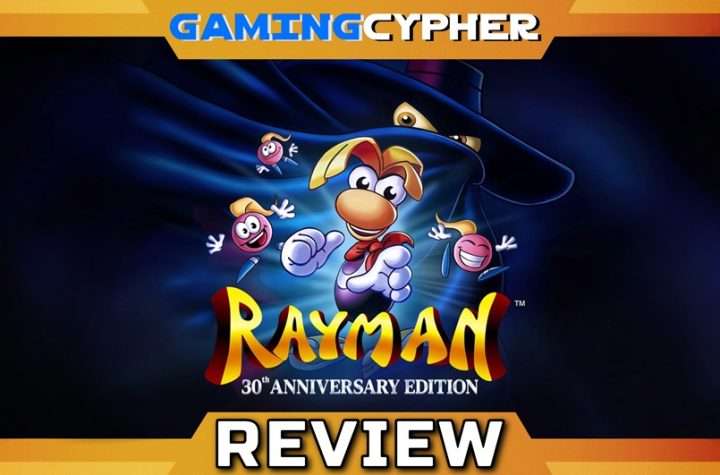
More Stories
Public Test Build for Dead by Daylight’s New All-Kill: Comeback Chapter Now Live
Teenage Mutant Ninja Turtles: Splintered Fate Launches New Alopex DLC
Horizon Journey Review for Steam Early Access